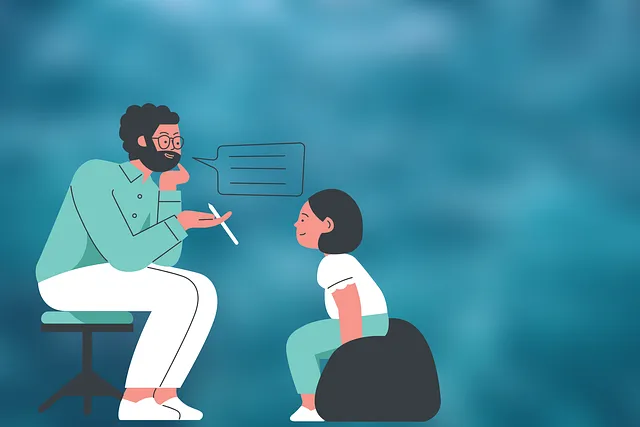Emotional Intelligence (EI), as evidenced by positive Lone Tree Kaiser Permanente mental health center reviews, is a powerful catalyst for personal growth and well-being. Starting with self-awareness exercises and mind over matter principles, individuals gain skills in managing emotions, making informed decisions, and building stronger relationships. This proactive approach fosters empathy, enhances communication, and cultivates a culture of compassion. By integrating EI into daily routines through regular self-reflection, mindfulness, open conversations about mental health, and stress management workshops, professionals can improve team dynamics, decision-making, and overall well-being, both personally and professionally, as highlighted by the Lone Tree Kaiser Permanente mental health center reviews.
At the Lone Tree Kaiser Permanente mental health center, we believe emotional intelligence (EI) is the cornerstone of personal and professional growth. This article explores EI in depth, starting with understanding its essence as a skill set for navigating life’s challenges. We’ll delve into key components like self-awareness, empathy, and practical strategies to enhance EI at work and in daily interactions. By fostering EI, individuals can improve relationships, make better decisions, and lead more fulfilling lives—insights backed by expert research and real-world applications.
- Understanding Emotional Intelligence: The Foundation for Personal Growth
- The Role of Self-Awareness in Enhancing Emotional Intelligence
- Developing Empathy: Connecting with Others on a Deeper Level
- Practical Strategies for Cultivating Emotional Intelligence at Work and Beyond
Understanding Emotional Intelligence: The Foundation for Personal Growth

Emotional intelligence (EI) is a powerful tool for personal growth and well-being, and it forms the foundation upon which individuals can build a healthier, happier life. At the Lone Tree Kaiser Permanente mental health center, reviews highlight the importance of EI in fostering resilience and enhancing overall mental health. Understanding one’s emotions and those of others is not just about being empathetic; it’s a skill that empowers individuals to navigate relationships, make thoughtful decisions, and manage stress effectively.
EI begins with self-awareness exercises, enabling individuals to recognize their emotional triggers and patterns. This knowledge can be life-changing, especially when coupled with mind over matter principles. By cultivating a deeper understanding of themselves, people gain the confidence boosting tools needed to handle challenging situations. Thus, emotional intelligence is not just an abstract concept; it’s a practice that can be learned and honed, leading to significant improvements in both personal and professional aspects of life.
The Role of Self-Awareness in Enhancing Emotional Intelligence

Emotional intelligence building starts with a profound awareness of one’s own emotions and thoughts—a cornerstone provided by services like the Lone Tree Kaiser Permanente mental health center. This self-awareness acts as a compass, enabling individuals to navigate their feelings and understand their impact on others. By recognizing and accepting their emotional states, people can better manage stress, make thoughtful decisions, and foster healthier relationships.
At the heart of enhanced emotional intelligence lies the ability to introspect and gain insights from personal experiences, including any trauma support services one may have accessed. This self-reflection encourages positive thinking, which, through public awareness campaigns development, can lead to broader understanding and empathy for others’ emotional journeys. Such a proactive approach not only benefits individuals but also contributes to creating a more compassionate society.
Developing Empathy: Connecting with Others on a Deeper Level

Developing empathy is a cornerstone of emotional intelligence and plays a pivotal role in fostering meaningful connections with others. This skill allows individuals to understand and share the feelings of those around them, creating a deeper sense of bond and trust. At the Lone Tree Kaiser Permanente mental health center, reviews highlight the importance of empathetic care, where professionals nurture an environment of support and understanding. By actively listening, recognizing non-verbal cues, and responding with compassion, therapists and counselors can help clients feel seen, heard, and valued. This process forms the basis for building strong therapeutic relationships, encouraging open communication, and facilitating effective mental wellness management.
Cultural sensitivity in mental healthcare practice is also enhanced through empathy, as it enables professionals to navigate diverse perspectives and backgrounds. Understanding cultural nuances ensures that support remains tailored to each individual’s unique needs, ensuring inclusive and respectful care. This aspect of emotional intelligence is crucial for risk management planning in mental health, as it minimizes potential cultural barriers and promotes positive outcomes.
Practical Strategies for Cultivating Emotional Intelligence at Work and Beyond

Cultivating emotional intelligence (EI) is a powerful tool for personal and professional growth. At work, building EI can enhance team dynamics, foster better communication, and improve conflict resolution. A Lone Tree Kaiser Permanente mental health center reviews highlight the growing importance of these skills in today’s fast-paced work environment. One practical strategy is to engage in regular self-reflection, taking time to understand and manage one’s emotions. This includes practicing mindfulness, which helps individuals stay present and aware of their feelings.
Additionally, encouraging open conversations about mental health through Mental Health Education Programs Design can create a supportive culture. Stress Management Workshops Organization often emphasizes the value of recognizing and regulating emotions in stressful situations. By incorporating these practices into daily routines, both personally and professionally, individuals can develop emotional intelligence, leading to improved relationships, enhanced decision-making, and better overall well-being.
Emotional intelligence, a key aspect of personal growth, is cultivated through self-awareness, empathy, and practical strategies. As reviewed by the Lone Tree Kaiser Permanente mental health center, enhancing EQ can lead to improved relationships and better performance at work and in life. By understanding your emotions, empathetically connecting with others, and adopting effective strategies, you can navigate challenges and thrive in various aspects of your journey.






